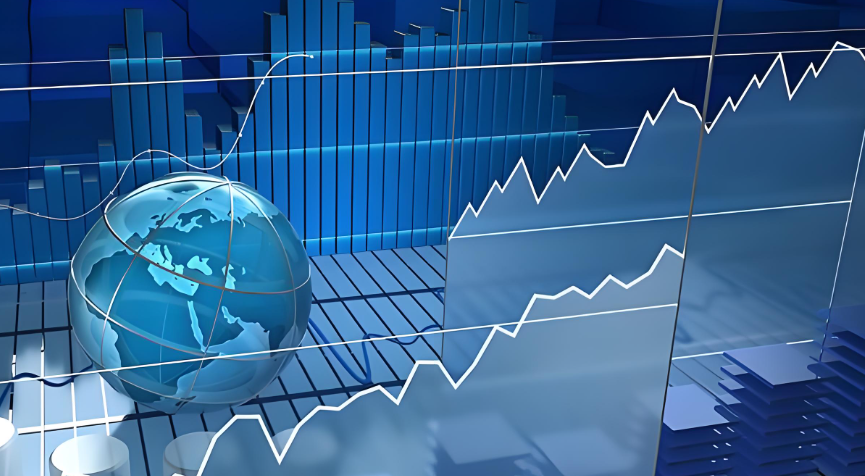Morning Brief FM | January 14, 2025
Advertisements
The financial landscape has been painted with contrasting performances as the U.S. stock market prepares itself in anticipation of the much-awaited Consumer Price Index (CPI) data. In a clear demonstration of the market's volatility, energy stocks surged more than 2%, providing a rescue for the S&P 500 as it battled a precarious rebound. However, the technology sector, a critical engine for economic growth, weighed heavily on overall performance. At the start of trading, the Nasdaq slipped nearly 2% but managed to recover partially, closing down by 0.28%. Notably, Nvidia, a key player in the AI and tech space, experienced a decline of nearly 5% at one point, eventually settling for a near 2% loss. Amidst this turmoil, the cryptocurrency sector also felt the effects as shares of D-Wave Quantum, known for its quantum computing innovations, plunged over 30%. Conversely, Tesla saw a remarkable turnaround, initially dropping close to 4% before closing up more than 2%, exemplifying the erratic nature of the market.
Additional market indicators reflected a broader trend. The yield on the ten-year U.S. Treasury bond rose above 4.80%, marking its highest point in more than a year, as inflation concerns linger in the background. The strength of the dollar became apparent as it broke over the 110 mark on the index, reaching two-year highs. Conversely, the euro hit a two-year low, while the offshore Chinese yuan saw a gain, inching back above 7.35.
On the commodity front, crude oil prices saw a third consecutive increase, climbing to a five-month high, with U.S. oil hitting a remarkable gain of over 3%. However, gold prices fell from their previously established highs, dropping more than 1% during trading hours. Moving across the globe into the Asian markets, the situation mirrored that of the U.S., with mixed results from the three major indices, while the North China Stock 50 faced a significant loss of over 2%.

In noteworthy developments influencing the markets, Tencent's founder, Ma Huateng, revealed during an internal meeting that the company's international gaming operations are closing in on half of its business derived from China. This shift symbolizes Tencent's rapid growth trajectory in the overseas gaming market. Furthermore, he expressed optimism for e-commerce developments, emphasizing the potential for products to extend beyond the confines of social media platforms like WeChat. Ma voiced aspirations for future innovations and initiatives, hoping for a surge in creative ideas akin to 'blue packets' within the WeChat ecosystem.
Nvidia's situation turned decidedly precarious as reports circulated concerning failures in its latest generation of Blackwell AI chips, leading to significant order cancellations from clients such as Microsoft. This caused a temporary plunge in Nvidia's stock by almost 5%. Such technical troubles, ostensibly linked to issues like server overheating and connectivity abnormalities in their systems, have sparked discussions on the viability and future reliability of AI technologies sustained by such semiconductor giants.
In a twist of fate for Tesla, Morgan Stanley has increased its stock prediction, forecasting a potential rise of 800 dollars, more than doubling the current price. The positive outlook centers around the company's self-driving technology advancements and embodied intelligence, positioned as a transformative force. Following some initial losses, Tesla also witnessed a resurgence, highlighting the company’s volatile nature.
In macroeconomic assessments, Goldman Sachs forecasts that the dollar will appreciate by at least 5% over the next year, as they predict the euro could plunge below parity against the dollar within six months. The bank has noted the ongoing resilience in the U.S. economy as a critical factor, alongside anticipated tariffs that could contribute to inflationary pressures.
Asian markets are not immune to these changes as they are grappling with currency fluctuations. Following robust non-farm payroll numbers from the U.S., concerns over inflation have reignited, negatively impacting local currencies. The ensuing Asian currency war presents a challenging environment for investments, with the Bank of Korea reportedly selling dollars to bolster the Korean won in response to these market pressures.
On the international stage, the UK has entered the fray of artificial intelligence (AI) development, aspiring to procure 100,000 GPUs over the next five years to significantly enhance its sovereign computing capabilities for academic and public service application. The objective aligns with a broader strategy to leverage AI across various sectors.
In an overview of major U.S. market indices, the Dow Jones rose by 0.86%, while the broader S&P 500 gained 0.16%. Conversely, the Nasdaq experienced a decline of 0.28%, showcasing the dichotomy within market sectors. In Europe, stock indices reflected their own dynamics, with the European STOXX 600 index dropping by 0.55% and individual country indices, including Germany's DAX 30 and France's CAC 40, down by 0.41% and 0.30% respectively.
As the domestic market adjusted to these global trends, the Chinese stock market experienced mixed outcomes with the Shanghai Composite dipping by 0.25%, while the Shenzhen Composite and ChiNext showed stability with a minor increase of 0.36%.
In the fixed income market, the ten-year Treasury bond yielded approximately 4.78% by the close of the day, indicating a stable upward trend in risk-free returns. Meanwhile, WTI crude oil futures exhibited an impressive climb of 2.94%, settling at $78.82 per barrel, while Brent futures saw a rise of 1.57%. Gold futures, however, experienced a decline of 1.34%, revealing the complexities in commodity trading.
Further afield, major headlines included the lament from leading tech industry figures like Zuckerberg and Nvidia's Huang, casually downplaying quantum computing's timeline for mass applicability, thus contributing to heightened volatility in related stock performances.
The recent acquisition of Intra-Cellular by Johnson & Johnson underscores the resurgence of M&A activity in the biotech sector, indicating a bullish investor sentiment amid previous downturns.
Overall, the financial markets illustrated the intricacies of interconnected global economies and their respective responses to shifting fundamentals, technological advancements, and the ceaseless push towards innovation amidst prevailing macroeconomic headwinds.